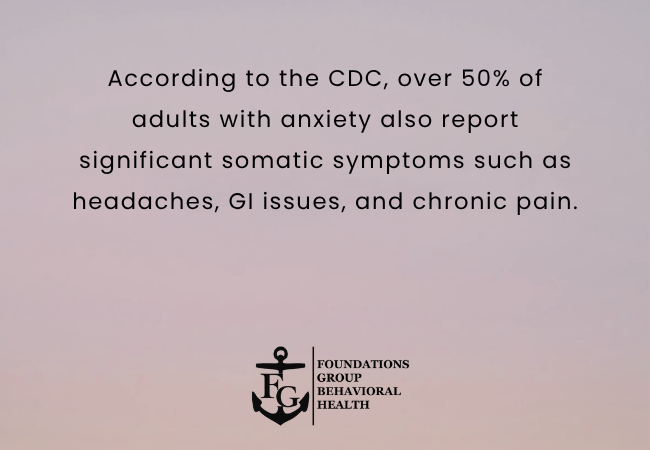Anxiety can look vastly different from person to person. For some, it surfaces as mild unease in social situations; for others, it spirals into daily panic attacks, obsessive thinking, or chronic physical tension. With such a wide spectrum, mental health providers often offer a range of care options—from general therapy sessions to more structured treatment programs. But how do these approaches differ in practice, effectiveness, and purpose?
This distinction becomes especially important for individuals who have been in traditional therapy for months—or even years—without significant progress. If anxiety persists despite working with a therapist, it may be time to explore whether a more structured, targeted approach can provide relief. Structured anxiety treatment programs differ from generalized therapy in several key ways, including the intensity of care, clinical design, therapeutic modalities used, and long-term recovery strategies.
This article explores those differences in depth, and highlights how clients and families can make informed decisions about which level of care is most appropriate for their needs.
Understanding Generalized Therapy for Anxiety
Generalized therapy, also called talk therapy or outpatient counseling, is often the first step for individuals seeking help for anxiety. It typically involves meeting with a licensed mental health professional once per week for 50–60 minutes. During these sessions, clients discuss their thoughts, behaviors, emotions, and life challenges. The therapist may use various approaches such as humanistic, psychodynamic, or cognitive techniques based on the therapist’s training and the client’s presenting concerns.
While generalized therapy provides a supportive space to process feelings and build coping skills, its results can vary widely. Much depends on the therapist-client match, the severity of symptoms, and the therapeutic approach used. Weekly therapy is appropriate for many mild to moderate anxiety presentations and can be a powerful tool in building self-awareness, enhancing emotional regulation, and resolving interpersonal conflicts.
However, clients with chronic, treatment-resistant, or functionally impairing anxiety may find that generalized therapy alone is insufficient. This is where structured anxiety treatment programs become a valuable next step.
What Makes Structured Anxiety Treatment Unique?
Structured anxiety treatment programs differ from generalized therapy in that they are intensive, time-bound, and specifically designed to treat anxiety disorders with evidence-based interventions. These programs operate within a clinical framework that combines multiple therapeutic modalities under the supervision of licensed professionals, often in a multidisciplinary setting.
One key difference is the frequency and duration of care. Instead of once-weekly sessions, structured programs might meet multiple times per week, for several hours at a time. This higher frequency allows for deeper therapeutic work, real-time support, and greater accountability for both client and clinician.
Another defining feature is the focus on skill-building and behavior change. Structured programs aim not just to discuss symptoms but to actively intervene in maladaptive thought and behavior patterns. This is achieved through therapeutic exercises, exposure work, somatic integration, group therapy, and psychoeducation—all within a carefully planned schedule.
For example, clients with social anxiety may practice role-plays, attend real-world exposures, and develop distress tolerance strategies in a supportive group environment. Those with panic disorder may learn breathing retraining, cognitive reframing, and interoceptive exposure techniques to dismantle fear cycles. Unlike generalized therapy, which is often more open-ended, structured programs are results-driven and goal-oriented.
Cognitive and Behavioral Focus in Structured Programs
One of the most effective elements of structured anxiety care is the emphasis on cognitive and behavioral work. Therapists draw from well-researched frameworks such as Cognitive Behavioral Therapy in Massachusetts to identify and challenge distorted thought patterns. CBT is rooted in the idea that how we think influences how we feel and behave. By identifying cognitive distortions—like catastrophizing, black-and-white thinking, or emotional reasoning—clients can replace unhelpful thoughts with more balanced perspectives.
In structured treatment settings, CBT is delivered in a more intensive format than traditional outpatient sessions. This could include daily skills groups, behavioral experiments, and collaborative homework assignments. The repetition and frequency of practice are key to rewiring anxious patterns.
Importantly, structured programs also emphasize behavioral activation, a strategy particularly helpful for individuals with comorbid anxiety and depression. By scheduling rewarding, mastery-building activities into daily life, clients learn to break cycles of avoidance, isolation, and inertia.
Somatic and Exposure Techniques in Clinical Programming
Structured anxiety treatment programs frequently incorporate exposure-based techniques, such as graduated exposure to feared situations, sensations, or thoughts. These techniques help desensitize the nervous system and build tolerance to anxiety-inducing stimuli over time.
In addition to exposure, somatic practices such as grounding, progressive muscle relaxation, or guided breathwork may be integrated to help clients connect with their bodies. This holistic approach supports self-regulation, trauma healing, and deeper emotional processing.
These strategies are not always available in traditional therapy due to time constraints or limited clinician training. However, in structured programs, they are prioritized as central elements of treatment.
Higher-Level Care for Functional Impairment
When anxiety interferes with work, relationships, or basic self-care, higher levels of support may be needed. A Psychiatric Day Treatment Program Massachusetts offers a step above traditional therapy while allowing individuals to continue living at home.
This level of care may include full psychiatric evaluation, medication management, individual therapy, skills groups, and family involvement. Clients benefit from a robust team of professionals including psychiatrists, clinical psychologists, and therapists working in coordination to address complex needs.
Programs may run five days a week for several hours a day, often transitioning clients into lower-intensity options (such as half-day or outpatient therapy) once stabilization is achieved. The goal is to provide clinical scaffolding during periods of intense struggle and prevent hospitalizations by offering consistent, structured care in a safe environment.

Matching Treatment Intensity to Symptom Severity
Selecting the right level of care is essential. Someone experiencing occasional anxiety before public speaking doesn’t need the same level of support as someone immobilized by daily panic attacks. That’s why individualized treatment planning is a cornerstone of structured programs.
An Anxiety Treatment Program Treatment Massachusetts typically begins with a comprehensive clinical assessment. This evaluation considers symptom severity, co-occurring conditions, previous treatment history, and personal goals. Based on this information, a care plan is created that outlines the appropriate treatment intensity, duration, and goals.
Structured programs may also offer specialized tracks for trauma-related anxiety, obsessive-compulsive tendencies, or generalized anxiety disorder, tailoring interventions to each client’s unique profile.
The Role of Environment and Peer Support
Generalized therapy can sometimes feel isolating, especially if a client is struggling with issues that are difficult for friends or family to understand. In contrast, structured programs provide a therapeutic environment where clients interact with peers facing similar challenges.
This group context reduces shame, normalizes the recovery process, and creates opportunities for social learning. Clients may practice assertiveness, boundary setting, and emotional expression with supportive feedback from both clinicians and group members. For those with social anxiety, this built-in exposure is particularly healing.
Moreover, structured programs often take place in calming, recovery-focused spaces like a Behavioral Health Treatment Center Massachusetts, where every aspect of the setting—from staff training to daily routines—is designed to support mental wellness.
Why Choose Foundations Group Behavioral Health?
At Foundations Group Behavioral Health, we understand the importance of matching each client with the right level of care. Our compassionate team provides comprehensive assessments, evidence-based therapies, and personalized support that goes beyond surface-level symptom management. We’re proud to offer an Outpatient Mental Health Therapy Massachusetts program that supports healing at every stage of the journey—from crisis stabilization to long-term recovery.
Conclusion
Anxiety doesn’t always respond to one-size-fits-all solutions. For some, traditional therapy offers the insight and encouragement they need to move forward. But when anxiety becomes deeply ingrained or resistant to change, structured treatment programs offer a path to lasting relief. These programs combine intensive clinical support, peer connection, and targeted interventions to help individuals reclaim their lives from anxiety’s grip.
Whether you’re seeking help for the first time or looking for an alternative after generalized therapy, Foundations Group Behavioral Health can help you take the next step. To learn more or speak with our team, call us today at (833) 986-2594.
Frequently Asked Questions (FAQs)
What is the main difference between structured anxiety treatment and general therapy?
Structured anxiety treatment is more intensive and includes multiple therapeutic approaches delivered several times per week, while general therapy is usually once-weekly talk sessions.
Who should consider a structured anxiety treatment program?
People with chronic, severe, or treatment-resistant anxiety—especially when it disrupts daily life—are strong candidates for structured treatment programs.
How long do structured anxiety programs usually last?
Programs vary in length, but many run for several weeks to a few months, depending on the individual’s clinical needs and progress.
Are group therapies part of structured anxiety treatment?
Yes, group therapy is a key component, offering peer support, skill-building, and real-time practice of coping mechanisms in a safe, structured environment.
Can I continue working while attending a structured program?
Some programs, like half-day or outpatient options, are designed to allow clients to maintain part-time work or school schedules while receiving treatment.








